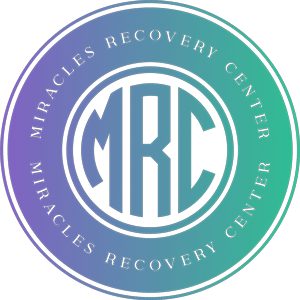Recovering from an illness or medical condition can be a challenging experience. While every individual’s journey is unique, hospitalization programs are designed to provide comprehensive support when you need it the most. In this blog, we’ll explore how these programs can play a vital role in your recovery journey, offering not only medical treatment but also emotional and psychological support.
Understanding the Basics of Hospitalization Programs
Hospitalization programs are structured to provide intensive medical care for patients with serious health conditions. These programs often involve a multidisciplinary team of healthcare professionals working together to ensure comprehensive treatment tailored to the patient’s needs. The team usually includes physicians, nurses, therapists, and social workers who collaborate to address every aspect of a patient’s health. The intensity and duration of care typically depend on the individual’s condition and the goals set by the healthcare team. By staying in a controlled environment, patients can benefit from continuous monitoring and immediate access to medical intervention if needed, which is crucial for those with severe conditions.
Moreover, the structured nature of hospitalization programs allows for consistent administration of treatments and medications, reducing the risk of omissions due to errors or non-compliance. This structure helps to stabilize patients quickly and create a safer environment where they can focus solely on their recovery journey. For many patients, this level of care is a necessary step in overcoming a serious health challenge, offering a chance to reset their health in a closely supervised setting.
The Role of Personalized Care Plans
One of the key benefits of hospitalization programs is the development of personalized care plans. These plans are crafted after a thorough assessment of the patient’s condition, taking into account their specific medical needs and recovery goals. Personalization ensures that care is precise and effective. When patients enter a hospital program, they undergo evaluations that consider their medical history, lifestyle, and personal preferences. This information allows the healthcare team to formulate a customized plan, which often includes a combination of medical treatments, therapeutic interventions, and lifestyle adjustments.
The importance of a personalized approach cannot be overstated. It recognizes that each patient is unique, with their own set of challenges and strengths. By aligning the treatment with their specific needs, hospitalization programs help patients feel more understood and engage actively in their recovery process. This tailored approach often leads to better outcomes by addressing the root cause of the health issue and promoting long-term wellness, making the hospitalization experience more effective and fulfilling for the patient.
Emotional and Psychological Support During Recovery
Recovering from a health issue isn’t just about physical healing. Hospitalization programs often include psychological support services such as counseling, group therapy sessions, and stress management workshops to cater to the emotional well-being of patients. This holistic approach recognizes the intricate connection between mental and physical health, providing a balanced support system to tackle both. Patients can benefit from therapeutic techniques that help them manage anxiety, depression, and stress that frequently accompany serious health conditions. Participating in counseling sessions can also help patients open up about their fears and apprehensions, fostering a healthier mindset towards recovery.
Group therapy sessions provide patients with an opportunity to meet others on a similar path, offering a platform to share experiences and strategies for coping with challenges. Having a shared space where individuals can express their thoughts and feelings promotes a sense of solidarity and understanding. This emotional anchoring often makes the recovery process feel less overwhelming, allowing patients to build resilience and hope for their future. Additionally, stress management workshops teach practical techniques such as mindfulness and relaxation exercises, equipping patients with tools to maintain balance during and after their hospital stay.
Encouraging Community and Connection
Being part of a hospitalization program means you’re not alone in your recovery journey. These programs often foster a sense of community among patients, offering the chance to connect with others who are on similar paths. This support system can be invaluable in promoting recovery. A community environment within the hospital helps break down feelings of isolation and alienation, creating a space where patients can forge meaningful relationships. Engaging with peers who understand your challenges can be incredibly validating, offering comfort and encouragement when needed most. Shared activities and communal meals create a homely atmosphere, building a network of support that extends beyond the walls of the hospital.
Furthermore, hospitals often organize social events and outings that encourage interaction among patients, giving them a break from the clinical setting and a chance to enjoy themselves. Through these interactions, patients share tips, motivations, and stories, nurturing a sense of belonging and accountability. These connections often last long after the hospitalization period, becoming a continuing source of support in the recovery journey. Building such relationships is often a turning point for many in their recovery, providing the social backing necessary to sustain progress and face challenges with renewed strength.
Integrating Follow-up and Continuing Care
Hospitalization programs don’t just stop once you leave the hospital. They often include structured follow-up care, ensuring that patients continue to receive the support they need as they transition back to their everyday lives. This ongoing care is crucial for maintaining progress and preventing setbacks. Upon discharge, patients typically receive a detailed aftercare plan from their healthcare team, which outlines the recommended follow-up appointments, therapies, and any necessary lifestyle changes. Such plans are designed to facilitate a smooth transition from a controlled hospital environment to the individual’s home, reducing the risk of relapse or deterioration in health.
Continuing care might involve regular check-ins with healthcare providers, participation in outpatient programs, and access to resources such as helplines or support groups. These services aim to monitor the patient’s recovery and address any emerging issues before they escalate. Additionally, many programs encourage patient involvement in community support networks, which provides a sustainable model of care rooted in the concept of peer reinforcement and community engagement. For those transitioning from inpatient settings, transitioning from inpatient care to a partial hospitalization program is a significant step that allows them to practice independence while continuing to receive structured medical support.
Embrace Your Recovery Journey with Support
A hospitalization program can be a transformative experience, providing the medical care and emotional support necessary for a successful recovery. Whether it’s through expert medical treatment, personalized care plans, or community building, these programs aim to make your recovery journey as smooth and effective as possible. If you or a loved one is facing a health challenge, considering a hospitalization program might just be the key to a better recovery. Explore more about our comprehensive care options at Miracles Recovery Center.





